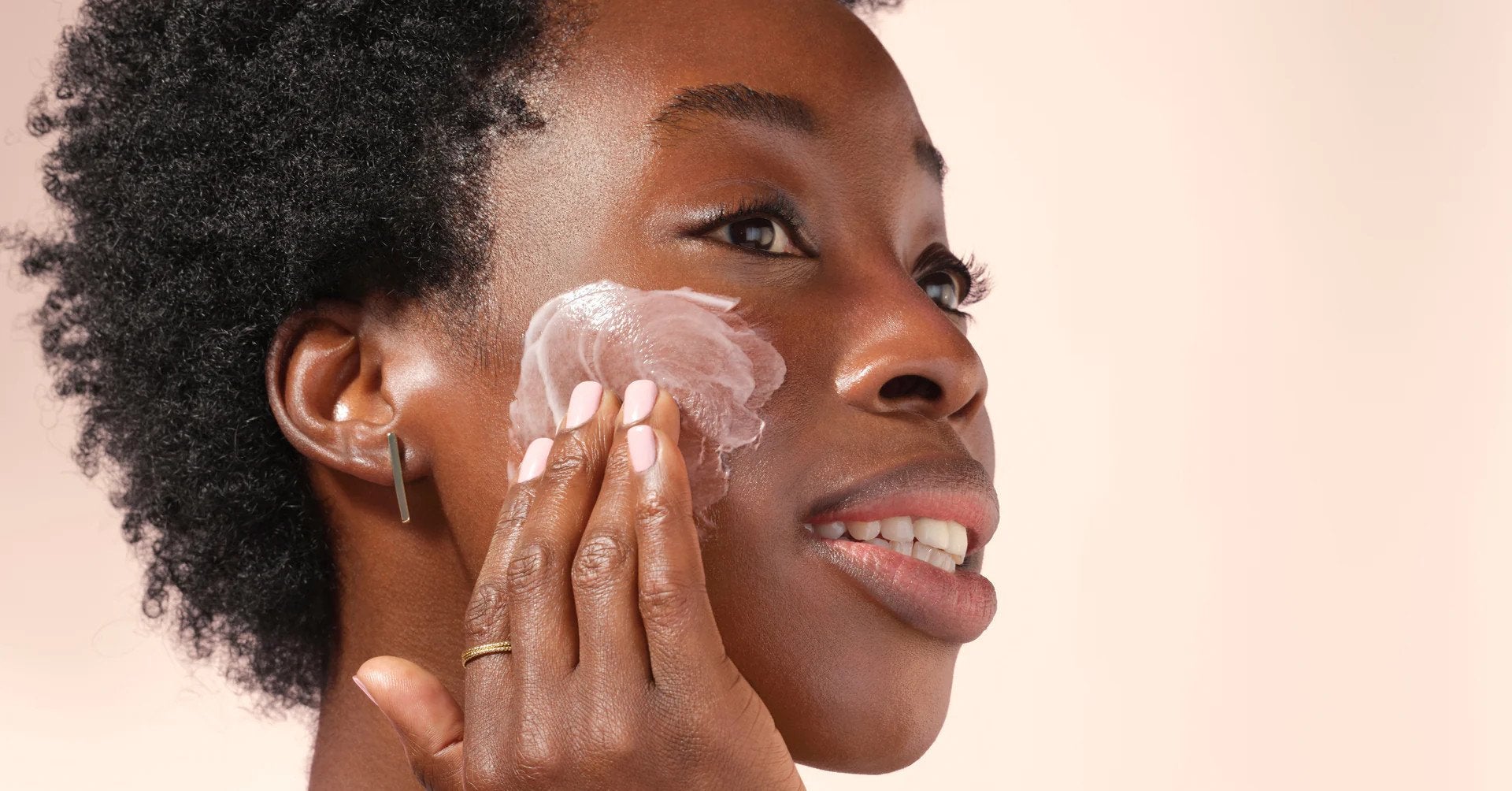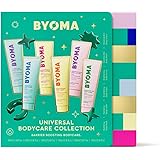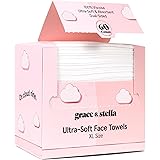Clear skin is everyone’s dream. Achieving it doesn’t have to be hard.
In this blog post, we’ll explore easy skincare hacks for clear skin. You don’t need expensive products or complex routines. Simple changes can make a huge difference. From adjusting your diet to choosing the right cleanser, these tips are practical and effective.
Many people struggle with skincare, and it can be overwhelming. But with the right guidance, you can see real improvements. Clear skin boosts confidence and makes you feel great. Let’s dive into these hacks and discover how you can achieve the clear, glowing skin you’ve always wanted. Get ready to transform your skincare routine with these easy tips!
Morning Routine
Starting your day with a good skincare routine can make a huge difference. A morning routine sets the stage for clear, healthy skin. Let’s dive into the essentials you need.
Cleanser Choice
The first step is choosing the right cleanser. A gentle cleanser removes dirt and oil without drying your skin. Look for one that suits your skin type. For oily skin, use a foaming cleanser. For dry skin, a hydrating cleanser works best. Sensitive skin benefits from a fragrance-free option.
Moisturizer Application
After cleansing, apply a good moisturizer. This keeps your skin hydrated throughout the day. Pick a lightweight, non-comedogenic moisturizer if you have oily skin. For dry skin, a richer, creamier option is better. Apply the moisturizer while your skin is still damp. This helps lock in moisture. Don’t forget your neck and upper chest areas.
Nighttime Skincare
Nighttime is the perfect time for your skin to heal and renew. A good nighttime skincare routine can help you achieve clear, healthy skin. Here, we share some effective nighttime skincare hacks.
Makeup Removal
Removing your makeup before bed is crucial. Makeup can clog your pores and lead to breakouts. Use a gentle makeup remover to clean your face thoroughly.
| Type of Makeup Remover | Benefits |
|---|---|
| Micellar Water | Removes makeup gently without irritating the skin. |
| Cleansing Oil | Breaks down waterproof makeup and nourishes the skin. |
| Cleansing Balm | Effective for all skin types, especially dry skin. |
Night Cream Benefits
Applying a night cream can work wonders for your skin. Night creams are formulated to hydrate and repair your skin while you sleep.
- Hydration: Night creams help lock in moisture, keeping your skin soft.
- Repair: They aid in the repair of skin cells, reducing the signs of aging.
- Nourishment: Night creams contain vitamins and nutrients that nourish your skin.
Choose a night cream suitable for your skin type. For oily skin, use a light, non-comedogenic cream. For dry skin, opt for a richer, more hydrating formula.
Hydration Tips
Keeping your skin hydrated is key to achieving clear skin. Proper hydration helps maintain skin elasticity, reduces wrinkles, and gives you a natural glow. Below are some effective hydration tips to help you achieve clear, radiant skin.
Water Intake
Drinking enough water is essential for clear skin. Aim for at least 8 glasses of water a day. Water helps flush out toxins from your body. It keeps your skin hydrated from the inside out.
| Water Intake | Benefit |
|---|---|
| 8 Glasses Daily | Flushing Out Toxins |
| Hydration | Maintaining Skin Elasticity |
You can also eat water-rich foods like cucumbers and watermelons. These foods provide extra hydration.
Hydrating Serums
Using hydrating serums can make a big difference in your skincare routine. Serums penetrate deeper into the skin compared to creams. They provide hydration at a cellular level.
- Look for serums with hyaluronic acid.
- Use serums with glycerin for extra moisture.
- Apply serum on damp skin for better absorption.
Hydrating serums help to lock in moisture and keep your skin plump.
Remember, hydrated skin is happy skin. Follow these tips to keep your skin clear and glowing.

Credit: www.biossance.com
Diet And Skin
Your diet plays a crucial role in the health of your skin. The foods you eat can help you achieve clear, glowing skin. On the other hand, certain foods can cause breakouts and other skin issues. Understanding which foods to include and avoid in your diet can make a big difference.
Nutrient-rich Foods
Some foods are packed with nutrients that are great for your skin. These foods can help reduce inflammation and promote clear skin.
- Fruits and Vegetables: Rich in vitamins and antioxidants. They help fight free radicals and keep skin healthy.
- Fatty Fish: High in omega-3 fatty acids. These reduce inflammation and keep skin moisturized.
- Nuts and Seeds: Provide zinc and vitamin E. These are essential for skin repair and protection.
- Whole Grains: Contain fiber and essential nutrients. They help maintain a balanced diet and support skin health.
Foods To Avoid
Some foods can trigger acne and other skin problems. Avoid these to keep your skin clear and healthy.
- Sugary Foods: High sugar levels can lead to inflammation and acne.
- Dairy Products: Some studies link dairy with increased acne breakouts.
- Fast Food: Typically high in unhealthy fats. These can cause skin issues.
- Processed Foods: Often contain additives and preservatives. These can negatively affect your skin.
Maintaining a balanced diet with nutrient-rich foods can greatly improve your skin’s health. Being mindful of what you eat can help you achieve the clear skin you desire.
Sun Protection
Sun protection is crucial for clear, healthy skin. The sun’s UV rays can cause damage, leading to premature aging and skin cancer. Protecting your skin from the sun helps maintain its clarity and health.
Spf Importance
SPF stands for Sun Protection Factor. It measures how well a sunscreen protects against UVB rays. UVB rays cause sunburn and contribute to skin cancer. Using a sunscreen with the right SPF can prevent these issues.
Experts recommend using a sunscreen with at least SPF 30. SPF 30 blocks about 97% of UVB rays. Higher SPFs block slightly more, but no sunscreen blocks 100% of UV rays. Consistent use of sunscreen reduces the risk of sun damage and helps keep skin clear.
Best Sunscreens
Choosing the right sunscreen is essential. Look for broad-spectrum sunscreens. They protect against both UVA and UVB rays. UVA rays cause aging, while UVB rays cause burns.
Opt for sunscreens suitable for your skin type. Gel-based sunscreens work well for oily skin. Cream-based sunscreens are better for dry skin. Ensure the sunscreen is non-comedogenic, meaning it won’t clog pores.
Some recommended sunscreens include:
- Neutrogena Ultra Sheer Dry-Touch Sunscreen SPF 55
- Cetaphil Daily Facial Moisturizer with SPF 50
- La Roche-Posay Anthelios Melt-in Milk Sunscreen SPF 100
Apply sunscreen daily, even on cloudy days. Reapply every two hours or after swimming or sweating. This routine helps maintain clear, healthy skin.
Dealing With Acne
Struggling with acne? Try these skincare hacks for clear skin. Wash your face twice daily and avoid touching your face. Use products with salicylic acid or benzoyl peroxide.
Dealing with acne can be challenging. Many people struggle with breakouts, leading to frustration. Clear skin seems like a distant dream. Don’t worry. There are effective ways to manage acne.
Spot Treatments
Spot treatments can help reduce acne quickly. Salicylic acid and benzoyl peroxide are popular choices. They target bacteria and reduce inflammation. Apply them directly on pimples. Use a cotton swab for precise application. Remember, less is more. Overusing can irritate the skin.
Preventive Measures
Preventing acne is easier than treating it. Start with a gentle cleanser. Wash your face twice daily. Avoid harsh scrubs. They can damage your skin. Moisturize regularly. Hydrated skin is less prone to breakouts. Choose non-comedogenic products. They won’t clog your pores.
Diet plays a role too. Reduce sugary and greasy foods. Drink plenty of water. It flushes out toxins. Exercise regularly. It improves blood flow and reduces stress. Always remove makeup before bed. Clean skin is happy skin.
Exfoliation Guide
Exfoliation is key to achieving clear, glowing skin. It removes dead skin cells and promotes new cell growth. This process helps unclog pores, leaving your skin smoother and more radiant.
Types Of Exfoliants
There are two main types of exfoliants: physical and chemical. Each has its own benefits and is suitable for different skin types.
| Type | Details |
|---|---|
| Physical Exfoliants | These use small grains or brushes to manually remove dead skin cells. Examples include scrubs and exfoliating brushes. |
| Chemical Exfoliants | These use acids or enzymes to dissolve dead skin cells. Common acids include AHA, BHA, and enzymes from fruits. |
How Often To Exfoliate
Exfoliation frequency depends on your skin type and the exfoliant used.
- Normal Skin: 2-3 times a week.
- Oily Skin: 3-4 times a week.
- Dry or Sensitive Skin: Once a week.
Over-exfoliation can irritate your skin. Always follow with a moisturizer to keep skin hydrated.

Professional Treatments
Professional treatments can help you achieve clear and radiant skin. They offer expert care that addresses specific skin concerns. Here are some effective professional treatments you can consider.
Facials
Facials are a popular treatment for clear skin. They cleanse, exfoliate, and nourish your skin. A skilled esthetician customizes each facial to suit your skin type. Here are some benefits of facials:
- Deep cleansing of pores
- Improved blood circulation
- Hydration and rejuvenation
- Reduced stress and relaxation
Regular facials can help maintain your skin’s health and glow. They remove impurities and dead skin cells. Facials also prepare your skin for better absorption of skincare products.
Chemical Peels
Chemical peels involve applying a chemical solution to the skin. This solution exfoliates the top layers, revealing fresher skin underneath. There are different types of chemical peels:
| Type of Peel | Benefits |
|---|---|
| Light Peel | Improves skin texture and tone |
| Medium Peel | Reduces fine lines and wrinkles |
| Deep Peel | Treats deep scars and severe wrinkles |
Chemical peels can effectively treat various skin concerns. They help with acne scars, sun damage, and uneven pigmentation. Always consult a professional before opting for a chemical peel.
Frequently Asked Questions
How Can I Get Clear Skin Naturally?
To get clear skin naturally, follow a proper skincare routine. Use gentle cleansers, exfoliate regularly, and stay hydrated. Incorporate natural remedies like aloe vera and honey. Avoid harsh chemicals and maintain a balanced diet.
What Are The Best Skincare Hacks?
Some effective skincare hacks include using ice cubes to reduce puffiness, applying green tea bags to soothe irritation, and using a honey mask for hydration. Regularly changing pillowcases and drinking plenty of water also help.
How Does Diet Affect Skin Clarity?
Diet plays a crucial role in skin clarity. Consuming a balanced diet rich in vitamins, minerals, and antioxidants can improve skin health. Avoid processed foods and sugary snacks. Focus on fruits, vegetables, and lean proteins.
Can Stress Cause Skin Problems?
Yes, stress can lead to various skin problems. It can trigger acne, eczema, and other inflammatory conditions. Managing stress through meditation, exercise, and proper sleep can help maintain clear skin.
Conclusion
Achieving clear skin doesn’t have to be complicated. Consistent care is key. Follow these simple skincare hacks. Cleanse daily, moisturize, and protect your skin from the sun. Eat a balanced diet and stay hydrated. Avoid harsh products that may irritate your skin.
With these tips, clearer skin is within reach. Remember, patience and regularity make a difference. Your skin will thank you for the effort. Keep up with your routine, and enjoy the results.

